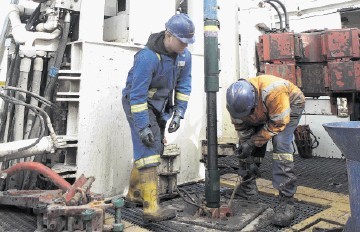
An energy policy expert has said there was a risk that the “right questions are not being asked or answered” on the issue of fracking.
Professor Karen Turner, director of the Centre for Energy Policy at Strathclyde University’s International Public Policy Institute, said the debate around fracking in Scotland should be set in a “broad context of energy and climate responsibility”.
Prof Turner said the economic, climate, health, community and environmental impacts of fracking all needed to be weighed up before a decision on whether to ban the technology in Scotland is made.
Prof Turner was commenting after the Scottish Government released a raft of reports into the potential impacts of permitting shale gas extraction in Scotland.
A public consultation will be held on the subject early next year.
Prof Turner said framing the consultation and decision in the context of Scotland’s “energy mix” was welcome.
But she said there was a need to consider the wide range of things gas is used for in Scotland and where it would come from if it cannot be extracted here.
Prof Turner said: “The economic evidence KPMG has provided would appear to give attention to the use of shale gas as a feedstock in petrochemical production at Grangemouth and this is crucially important, perhaps more so than the additional economic impact of extracting the gas in Scotland.
“However, the range of consumption demands that this petrochemical production services, both within Scotland and overseas, must be considered.
“This a question that should bring into focus the importance of taking global net carbon balances into account, rather than just Scottish territorial emissions targets.
“Furthermore, it is only in Scotland that the Scottish Government has regulatory control over fracking and other mining practices; if we choose to rely on imported hydrocarbons, not only does this transfer our carbon footprint overseas but we also lose any say in how they are extracted. The consultation process must be set in a broader context of energy and climate responsibility.
Prof Turner added: “There are questions around whether the potential health impacts of fracking have been considered in sufficient breadth and depth, the importance of energy poverty in Scotland, what is covered by regulation and what the real Scottish context for the economic case is – for example, how much gas is available, to what extent would Scottish supply chains and workers be used to extract it? There are also questions of the legacy impact – will fracking sites be returned to brownfield state? The debate should weigh up the economic, climate, health, community and environmental impacts and benefits of fracking against those of not fracking.”
